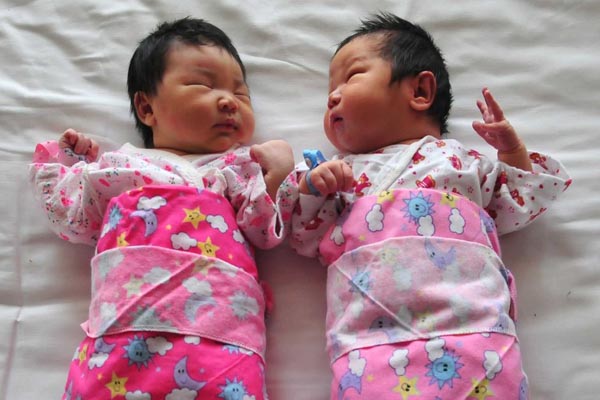-
Tips for becoming a good boxer - November 6, 2020
-
7 expert tips for making your hens night a memorable one - November 6, 2020
-
5 reasons to host your Christmas party on a cruise boat - November 6, 2020
-
What to do when you’re charged with a crime - November 6, 2020
-
Should you get one or multiple dogs? Here’s all you need to know - November 3, 2020
-
A Guide: How to Build Your Very Own Magic Mirror - February 14, 2019
-
Our Top Inspirational Baseball Stars - November 24, 2018
-
Five Tech Tools That Will Help You Turn Your Blog into a Business - November 24, 2018
-
How to Indulge on Vacation without Expanding Your Waist - November 9, 2018
-
5 Strategies for Businesses to Appeal to Today’s Increasingly Mobile-Crazed Customers - November 9, 2018
Two-child policy may add 3 million newborns each year: China
The rule change, announced after a key Communist Party meeting last month, will allow 90 million more Chinese women a second child, said Wang Pei’an, a vice minister of the National Health and Family Planning Commission.
Advertisement
Around three million extra babies will be born each year after Beijing abolished its hugely controversial “one child” policy to allow all couples to have two offspring, officials said Tuesday.
China introduced the one-child policy in the late 1970s to rein in population growth in an effort to overhaul the economy by limiting most urban couples to one child and most rural couples to two.
Wang said the policy needs to be approved by China’s top legislature next year before it becomes law.
China’s population is expected to rise from the current 1.368 billion to hit a peak of 1.45 billion in 2029, said Wang, indicating the scale of the preparation needed for these extra births.
He said that an increase in the number of babies will lower the proportion of the elderly, aged 60 or older, in the population by 2 percentage points.
The policy is expected to be formally adopted in the spring.
Ninety million of the 140 million child-bearing age women who have been married and given birth to a child would now be allowed to have a second.
It would add a total of about 30 million people to the labour force by 2050, he told a briefing.
The two-child policy would boost economic growth by 0.5 of a percentage point, a study by the Chinese Academy of Social Sciences estimated.
Adoption of a two-child policy will boost consumer demand for housing, education and health and daily necessities, and increase employment in the short term, Wang said according to Reuters.
According to Yang Wenzhuang, head of the Department of Community Family Planning with the NHFPC, the two-child policy will exert positive influence on China’s economy in the long term as the babies born under the new policy grow into a workforce of high quality by 2050.
Advertisement
Wang said that the new policy had already provided a boost to the maternity industry, which had been performing well in the stock market recently.





























